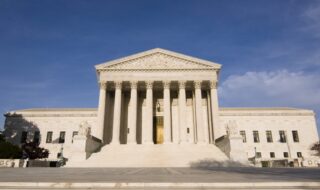June 23, 2023
Minnesota Legislature Session Recap Part III: Energy, Environment, Healthcare
The 2023 Minnesota Legislative Session concluded on May 23. Since then, we’ve been exploring the impact on small business owners and our state in general.
In part one, we looked at tax and fee hikes that will impact small businesses, consumers, and others. In part two, we discussed new employer mandates that will increase costs and the regulatory burden for nearly every small employer.
In part three, we’ll look at a wide range of energy and healthcare legislation that brought significant changes for small business owners.
NFIB Minnesota vigorously opposed new mandates and higher costs on small businesses and, where possible, worked to minimize the negative impact on Main Street.
ENERGY
100% by 2040. Early in session, the Governor Walz and the DFL legislative majorities rushed to pass one of their top energy priorities – requiring most electricity generation in the state to be 100% “carbon free” by 2040. House File 7 was one of the first bills passed in 2023, signed into law by Gov. Walz a little over a month after the start of session.
HF 7 requires that all the state’s largest utilities – namely, Xcel, Otter Tail, Minnesota Power – generate 80% of their electricity from specific renewable sources by 2030. Other electric providers, such as municipal and cooperative utilities, have to achieve 60% renewable electricity by 2030. From there, all electric utilities must be 90% by 2035, and 100% by 2040.
This mandate will be costly for utility customers, who will bear nearly all of the costs associated with this transition. A 2020 Energy & Environment (E&E) Legal Institute report found transitioning to 100% renewable electricity would cost Minnesotans $57 billion in “first costs” alone. The Minnesota-based Center of the American Experiment found the “all-in” cost will be much higher, up to $313 billion by 2050.
A heavy mix of wind, solar, and battery storage is the preferred path in HF 7, which did not legalize the construction of new nuclear power plants or include carbon capture power plants in the definition of carbon-free or renewable resources.
The law includes weak off-ramps based on reliability and cost. Utilities must meet a high bar to exercise the off-ramps, and the Minnesota Public Utilities Commission has shown little concern for consumer cost as wind and solar have become a larger share of Minnesota’s energy mix.
Electric Car, Electric Bike, Electric Boat Subsidies. In addition to imposing an artificial, risky, and expensive timeline for 100% carbon-free electricity, DFL lawmakers found more ways to use your tax dollars to hasten the transition to their dream of an “all-electric” economy.
As part of this electrify everything push, DFL lawmakers decided to hand out major subsidies for “electric transportation.” This includes:
– $16 million for electric vehicle purchase or lease rebates (up to $2,500 per vehicle)
– $13.8 million for EV chargers
– $7 million for electric school buses
– $6.5 million for upgrading electric panels in single family and multifamily residential buildings to a minimum of 200 amps (to accommodate EV charging)
– $4 million for electric bike rebates (up to $1,500 per bike, two bikes per family)
In addition, the state’s largest utilities were authorized to charge their customers for the cost of giving out rebates and incentives for electric cars, bikes, ATVs, airplanes, and boats.
There is no limit to the amount of EV subsidy spending an electric utility can propose, with customers left at the mercy of the PUC to protect them from exorbitant increases on their electric bills.
Last year, Xcel Energy alone proposed spending as much as $400 million over five years on EV subsidies.
Back Door Gas Ban. One area in which we’re happy to report success is stopping the backdoor gas ban!
The original legislation would have allowed the Minnesota Department of Labor and Industry to ban the installation of natural gas, propane, oil, and other carbon-based energy infrastructure and appliances in new and existing residential and commercial buildings.
NFIB led a broad coalition of stakeholders to stop this power grab that would have devastating impacts on life and business in Minnesota.
Commercial Energy Code. NFIB also worked with a broad group of business interests to stop a proposal that would have required all new and remodeled commercial buildings to be powered with 100% carbon-free energy sources by 2036.
An unmeetable goal, the final version of this legislation was modified to requirement that the state’s commercial energy code gradually achieve an 80% reduction in net energy use by 2036 (compared to 2004 standards). Along the way, new and remodeled commercial buildings will have to comply with the most recent version of the commercial energy code.
In committee testimony, proponents stated that the current code is already at a 50% reduction compared to 2004.
ENVIRONMENT
PFAS Regulation. In the environment issue area, PFAS regulation was a big focus this session. PFAS are a group of chemicals used to make many consumer products nonstick and resistant to heat, oil, and stains that have been used for decades and increasingly linked to health issues in recent years.
Tens of millions were appropriated to fund various PFAS mitigation strategies, including $4.2 million to industry and public entities to identify sources of PFAS and reduce their use and release and $25 million for designing and developing solutions for water treatment systems contaminated with PFAS.
Small business owners involved in the manufacturing or sale of certain products will want to take note of new prohibitions and a byzantine new system of PFAS tracking and disclosure included in the 2023 Environment and Energy Omnibus Bill (Art. 3, Sec. 21).
By January 1, 2026, manufacturers of products that contain “intentionally added PFAs” (meaning PFAS added during the manufacturing process to perform a specific function) must disclose the existence and reason for the intentionally added PFAS to the Minnesota Pollution Control Agency (MPCA). Products for which required disclosures are not made may not be sold or distribute in Minnesota.
In addition, beginning January 1, 2025, the following products containing intentionally added PFAS may not be sold or distribute in Minnesota: carpets or rugs; cleaning products; cookware; cosmetics; dental floss; fabric treatments; juvenile products; menstruation products; textile furnishings; ski wax; or upholstered furniture. Between 2025 and 2031, the PCA can add additional products categories to this no sale/no distribution list.
Failure to comply could result in fines of up to $10,000 per day plus additional damages and costs.
NFIB and many other business groups objected to the vagueness and infeasibility of this tracking system and the broad power to ban consumer products given to a state agency. It is unclear how a manufacturer or retailer in Minnesota would receive notice of added PFAS in a product manufactured – in whole or part – in another state or country where this disclosure is not required.
This is especially true of the manufacture or assembly of a product takes part in multiple locations outside of Minnesota, and PFAS is intentionally added one or more stops before the product enters our state.
The new regulation is likely to undergo revision and/or litigation in coming years in order to make it workable.
HEALTHCARE
Public Option. A government-directed public option essentially allows politicians and bureaucrats to dictate the design and cost of a health insurance plan. A true public option is run by the government as an insurance product that competes with private plans, relying on taxpayer-funded subsidies to gradually undercut the private market until private insurance plans can no longer compete on price and exit the market.
Under the Minnesota public option scheme, politicians and bureaucrats will design individual and small group insurance plans that will be sold by the state or must be sold by private insurance companies. These plans will compete with privately designed options currently available in those markets.
The earliest a public option could be implemented would be 1/1/27, but several steps are required and future legislative action is likely necessary before any plan could come to fruition. NFIB has and will continue to vigorously oppose risky government healthcare schemes that eliminate private market options for small businesses.
Single Payer Study & More. The bill also includes a single payer study (but no plan for implementation), a study of the state taking over direct management of public health programs liked Medicaid and MinnesotaCare (would be a financial disaster), and expansion of MinnesotaCare to undocumented immigrants.
Healthcare Mandates. Minnesota has the most extensive set of health insurance coverage mandates in the country (over 60 specific benefit mandates by some counts), in addition to the benefits required under the federal Affordable Care Act (ACA).
Each mandated benefit is equivalent to roughly 0.5% to 1% of the cost of a health insurance policy, contributing to the high cost of health insurance in Minnesota.
State-mandated benefits fall exclusively on the fully insured market, where individuals and most small businesses obtain health insurance (as opposed to the self-insured market, which is subject to only limited state regulation under federal law and is where most large employers obtain coverage).
Lawmakers proposed dozens of health coverage mandates this year and the final Health and Human Services Budget included a few of them, with expanded mammogram and contraceptives coverage among them.
Fortunately, NFIB and several other organizations worked to stop the most expensive healthcare mandate proposed this year: a prohibition on “white bagging” of clinician-administered specialty prescription drugs. This proposal would have eliminated a critical healthcare cost containment tool for small employers that offer health coverage.
NFIB is a member-driven organization advocating on behalf of small and independent businesses nationwide.
Related Articles














